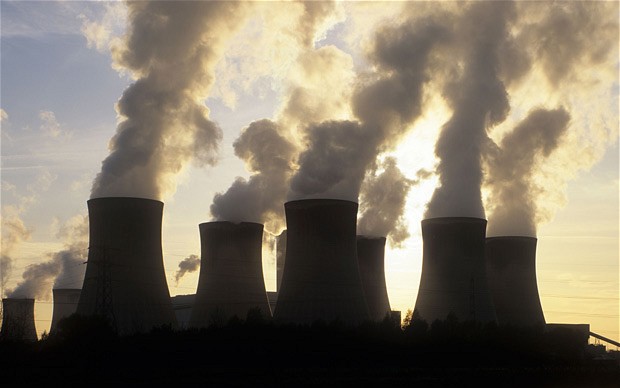A new state-wise assessment of coal power procurement, done by the Centre for Science and Environment (CSE), has found West Bengal to be number one state in buying the dirtiest coal power in India.

According to the study, most of the stations supplying electricity to the state have not taken adequate measures to comply with December 2015 sulphur dioxide norms notified by the Union Ministry of Environment, Forest, and Climate Change.
Says Nivit Kumar Yadav, programme director, industrial pollution, CSE: “Coal-fired power stations emit three major pollutants – particulate matter, oxides of nitrogen, and sulphur dioxide. Power stations have been specially lagging in their compliance with the sulphur dioxide norms.
“Therefore, in this study, the researchers have considered the progress made by stations to meet the sulphur dioxide norm as a measuring scale to identify the dirtiest power.”
The Ministry of Power is pushing the Ministry of Environment, Forest, and Climate Change to dilute or further delay the implementation of sulphur dioxide norms.
The assessment study
In its assessment, CSE has ranked the states and Union territories (UTs) based on the percentage tie-up they have with unclean coal power capacity. Thirty-three states procure electricity from coal-based power plants in India. These states have tie-ups with various coal-firing power generators which are at times located in different states also. CSE has accessed data for 162,091 MW capacity from the Ministry of Power’s website and has assessed how much cleaner power a particular state is procuring.
Says Soundaram Ramanathan, deputy programme manager, industrial pollution unit, CSE: “We found that on an average, only 42 per cent of the tie-ups have been with cleaner coal power stations. In nine states, the tie-ups have been lesser than this average – West Bengal with 16 per cent stands out as the state buying the maximum amount of ‘dirty’ power.”
Key findings
- Nine states are the major defaulters. On an average, these states are procuring nearly about 60 per cent of their coal-based electricity from unclean sources.
- West Bengal, Telangana and Gujarat top the list. In West Bengal, 84 per cent of power stations supplying power to the state are unclean and are far away from meeting the sulphur dioxide norms. West Bengal generates all the electricity it needs through its own power stations. Hence, the regulatory authorities in the state have the necessary powers to reduce pollution.
- In Telangana, this figure is 74 per cent; it is 71 per cent in Gujarat. Most of the power stations located in and supplying power to these states have done very little to meet the norms.
- The study found in three of the nine states: Rajasthan, Andhra Pradesh, and Tamil Nadu unclean power stations were one of the key sources of ambient air pollution in non-attainment cities:
- In the remaining three states — Maharashtra, Chhattisgarh, and Uttar Pradesh– unclean power stations are located in clusters, and are not making sufficient efforts to comply with the norms. For instance, all the stations in the Koradi belt supplying power to Maharashtra – Adani Tiroda, Bhusawal, Chandrapur, EMCO, Khaperkheda, Koradi, Rattan India, Nasik and Vidarbha Industries Power Ltd (except NTPC Mouda) – have not taken adequate steps to comply with the norms.
- The front-runners: Only 13 states/UTs (out of 33) are sourcing 100 percent of their requirements from clean coal-based power stations. These are Arunachal Pradesh, Assam, Chandigarh, Daman & Diu, Himachal Pradesh, J&K, Jharkhand, Manipur, Meghalaya, Mizoram, Nagaland, Sikkim and Tripura.
- Delhi and Goa are also very close in terms of procuring the cleanest — only 5-8 per cent of their power is coming from unclean sources (earlier, Delhi had been procuring one-third of its electricity from unclean sources).
- The rest of the states procure clean coal power in the range of 51-80 per cent. State-run and private-run stations are emerging as the key defaulters.
Of the nine states buying maximum unclean power, only Gujarat and West Bengal have the full authority to monitor the stations as these stations are located within their state boundaries.. The rest of the states have dual accountability of cleaning up both their own stations as well as ensuring stations supplying to them from other states are clean.
Says Yadav: “The penalty for non-compliance today is just a fraction of the fixed costs paid to power plants. This cannot push the sector towards compliance. The government will need to revisit and strengthen its deterrence mechanism – otherwise, implementing any environmental regulation will take decades.”
